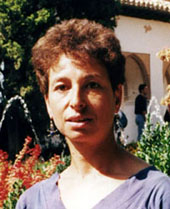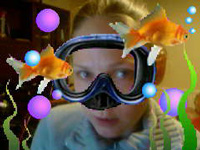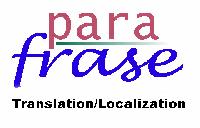How do native English-speaking parents teach their children letters of the alphabet? Thread poster: Maciek Drobka
|
|---|
Maciek Drobka 
Poland
Local time: 21:27
Member (2006)
English to Polish
+ ...
Hello,
I am a Polish native speaker who tries to raise his children as English and Polish bilinguals.
My children have got to a point where they want to know what letters of alphabet words begin with.
In Polish, this is pretty easy as the sounds of letters in isolation are the same as at the beginning of words except in a negligible number of cases. For example:
C sounds the same in isolation and in the word 'cebula' (onion)
K sounds the ... See more Hello,
I am a Polish native speaker who tries to raise his children as English and Polish bilinguals.
My children have got to a point where they want to know what letters of alphabet words begin with.
In Polish, this is pretty easy as the sounds of letters in isolation are the same as at the beginning of words except in a negligible number of cases. For example:
C sounds the same in isolation and in the word 'cebula' (onion)
K sounds the same in isolation and in the word 'klatka' (cage)
So when a child asks me in Polish what letter 'cebula' begins with, I can say 'C'. Same for 'klatka'. As simple as it gets.
Now, from this point of view, English (which I love) is a mess.
When a child asks me what letter 'car' begins with, I say 'C'. And feel like an idiot. There is no phonetic/sonic link between the [k] in [ka:] and the [si:] for 'C'.
Hence my question to native English-speaking parents: In situations like the above, is it simply natural for a native speaker to explain to their child that [ka:] begins with [si:] without wondering how confusing that might sound to the young mind? Or is that something of an issue for you, too? If it is an issue, how do you deal with it?
I want to help my children with their English when they ask a question, not complicate things for them.
Thank you in advance.
Maciek
[Edited at 2010-02-16 00:18 GMT] ▲ Collapse
| | | | B D Finch 
France
Local time: 21:27
French to English
+ ...
| Start with sounds | Feb 15, 2010 |
Because English spelling is designed to confuse, I would start out giving the most common sounds of letters rather than their names, which can follow once the most common sounds have been learned. I remember my son telling me that he had learned "f" at school and that it was for "fingers, face, fums and froat". At least that showed that he was trying to think of examples the teacher hadn't given!
So I'd teach a child that "c" is for "cup" and "g" is for "gull" and wait until la... See more Because English spelling is designed to confuse, I would start out giving the most common sounds of letters rather than their names, which can follow once the most common sounds have been learned. I remember my son telling me that he had learned "f" at school and that it was for "fingers, face, fums and froat". At least that showed that he was trying to think of examples the teacher hadn't given!
So I'd teach a child that "c" is for "cup" and "g" is for "gull" and wait until later to introduce the variants "ce" for "cereal", "g" for "giant". How much later would depend upon how quick the child was to pick up the first version and what questions s/he asked. ▲ Collapse
| | | | Ewa Dabrowska 
United Kingdom
Local time: 20:27
English to Polish
+ ...
As far as I know a lot of people swear by phonics. Others don't seem to think they are useful at all, but you can have a go. Check out some activiteis online, e.g. http://www.northwood.org.uk/phonics.htm
| | | | Edward Potter 
Spain
Local time: 21:27
Member (2003)
Spanish to English
+ ...
| Lots of reading | Feb 15, 2010 |
My amateur advice is to expose him to lots of English text.
Also an elementary book that explains all the little tricks with examples.
In the U.S. we spend years and years teaching children how to write properly. The result: Yahoo message boards.
In English, being able to spell separates the sheep from the goats.
| | |
|
|
|
| Teach both the name and the sound of letters | Feb 15, 2010 |
My sons first learned their English alphabet by singing an "alphabet song" (to the same Mozart tune as "Twinkle, twinkle little star" or "Bah Bah black sheep") which uses the name of the letters. They quickly learned to recognize letters by name, but going from there to reading words was more challenging.
In preschool and kindergarten, teachers would say something like "the letter C can sound like [k] (as in cat) or [s] (as in cent)". Another tool used by some teachers was a set of... See more My sons first learned their English alphabet by singing an "alphabet song" (to the same Mozart tune as "Twinkle, twinkle little star" or "Bah Bah black sheep") which uses the name of the letters. They quickly learned to recognize letters by name, but going from there to reading words was more challenging.
In preschool and kindergarten, teachers would say something like "the letter C can sound like [k] (as in cat) or [s] (as in cent)". Another tool used by some teachers was a set of 26 characters called "Letterlanders" (see e.g. http://www.letterland.com.au/parents, www.letterland.com/documents/pdf/AB06_pp01-03.pdf), designed to introduce letter shapes and sounds with examples. This was reinforced by other books written for pre-readers, focusing on different letters and sounds (phonics) in simple stories, and it all fell into place.
I don't know about Polish, but in my native language (French) in addition to letter sounds you also have to learn a gender for each noun, which is usually done by teaching the noun together with its article (le soleil, la maison...). So once the children are ready, you could teach the first letter every time they learn a new word.
Kids each learn their own way. I would suggest to use a variety of methods, based on their interests and their age/understanding. ▲ Collapse
| | | | Emma Goldsmith 
Spain
Local time: 21:27
Member (2004)
Spanish to English
| eddie elephant | Feb 15, 2010 |
I had the same situation as you, Maciek, because in Spanish the letters never change their sound, and I wanted to teach my children the English alphabet. To begin we always used the Letterland characters (See Isabelle's post). So we would talk about Eddie Elephant and Impy Ink, and do the Letterland alphabet puzzle time and time again.
One of my children picked it up really easily and we soon switched to "proper" alphabet sounds, but the other has taken much longer and even now (at the age... See more I had the same situation as you, Maciek, because in Spanish the letters never change their sound, and I wanted to teach my children the English alphabet. To begin we always used the Letterland characters (See Isabelle's post). So we would talk about Eddie Elephant and Impy Ink, and do the Letterland alphabet puzzle time and time again.
One of my children picked it up really easily and we soon switched to "proper" alphabet sounds, but the other has taken much longer and even now (at the age of 12) if I spell out something with a "u" in it he looks at me in panic until I reassure him with,
you know, Uppy Umbrella! ▲ Collapse
| | | | Elizabeth Adams 
United States
Local time: 12:27
Member (2002)
Russian to English
Hi Maciek,
Learning to read English is hard! My son is bilingual but he reads Russian much better because of the 1:1 correspondence of sounds and letters.
That said, there are ways to make it easier. One approach is to use little tricks like: if there is an A, O or U after the C, it says [k]. If it is followed by E or I it says [s]. There's even a little story about how when the alphabet letters lined up to get their sounds, all of a sudden the letter C decided it had to go to... See more Hi Maciek,
Learning to read English is hard! My son is bilingual but he reads Russian much better because of the 1:1 correspondence of sounds and letters.
That said, there are ways to make it easier. One approach is to use little tricks like: if there is an A, O or U after the C, it says [k]. If it is followed by E or I it says [s]. There's even a little story about how when the alphabet letters lined up to get their sounds, all of a sudden the letter C decided it had to go to the bathroom. When it came back, all the sounds were already given out. Its friends K and S agreed to share their sounds with it. Happy ending! When you personify the letters, the English alphabet becomes very interesting (like silent E at the end of a word making another vowel in the word say its name - "time" for example).
With vowel pairs like OA, OU, etc. I've taught my son that when they "hold hands" (meaning that they're next to each other) they make certain sounds. It's hard but he's getting the hang of it.
But remember that phonetics is not the whole game. If you work on logic and reasoning your kid can use context to figure out what a word MIGHT be, narrow down the options, etc. When I watch my son read I notice that he will stumble over part of a word and then figure it out based on what the next word is.
I also read somewhere that when we read fluently we aren't looking at the letters individually - we're looking at the shape of the whole word. So old fashioned flash cards are good as long as you keep them fun. I post fun words on the bathroom door, in his bedroom, etc.
So:
1. Tell stories about the letters
2. Work on context logic
3. Keep words everywhere in the kid's environment (walls, doors)
 ▲ Collapse
| | | | Rick Henry 
United States
Local time: 14:27
Italian to English
+ ...
| If I'm understanding you correctly... | Feb 16, 2010 |
You don't mention how old your children are, but...
This is pretty much how children learn the alphabet and association of each letter in the US:
http://www.ehow.com/how_4457651_teach-english-alphabet-nursery-children.html
Point 5 is particularly helpful in teaching kids to associate a letter with the many different sounds... See more You don't mention how old your children are, but...
This is pretty much how children learn the alphabet and association of each letter in the US:
http://www.ehow.com/how_4457651_teach-english-alphabet-nursery-children.html
Point 5 is particularly helpful in teaching kids to associate a letter with the many different sounds it may represent.
Granted, kids and adults alike continue to make mistakes throughout life. A fact we all have to deal with, due to the sheer number of loanwords, among other things, I suppose.
R.
== ▲ Collapse
| | |
|
|
|
Neil Coffey 
United Kingdom
Local time: 20:27
French to English
+ ...
| "Baby" names of letters... but you could just use the Polish ones | Feb 17, 2010 |
Whatever names you give to the letters, sooner or later the child has to come to grips with the fact:
(a) whatever names you give the letters, the correspondence between letter and sound is not very consistent in English;
(b) the "adult" names of letters in English bear a poor resemblence to their "canonical" sound.
Many nursery/primary school teachers postpone problem (b), and use a "baby" version of the alphabet (where the "names" of the letters are effectively ... See more Whatever names you give to the letters, sooner or later the child has to come to grips with the fact:
(a) whatever names you give the letters, the correspondence between letter and sound is not very consistent in English;
(b) the "adult" names of letters in English bear a poor resemblence to their "canonical" sound.
Many nursery/primary school teachers postpone problem (b), and use a "baby" version of the alphabet (where the "names" of the letters are effectively just the typical sound they represent plus a schwa vowel in the case of consonants) to teach children, and postpone problem (a) by starting with words where there *is* more of a coorespondence between the "baby" names of the letters and the pronunciation of the word.
But in any case, the correspondence is not perfect: whatever names you give to the letters, there'll never be a one-to-one correspondence between a given letter and the sound it represents in a particular word.
So... why worry about giving the letters special names just because they're spelling English words rather than Polish ones? Just use the Polish names for now. Sometimes the Polish name won't correspond with the sound a given letter makes in an English word... but so what? whatever names you pick, there'll never be a one-to-one correspondence. ▲ Collapse
| | | | John Rawlins 
Spain
Local time: 21:27
Spanish to English
+ ...
I simply used several packs of Ladybird flashcards with my children from a very young age. You show the card and the child shouts out the name of the letter or the word. Answers are wrong or right. Explanations come much later. This rather brutal and simple approach worked very well with my children - and they are both now avid readers in English and Spanish.
| | | | | LOTS of reading... everywhere. | Feb 17, 2010 |
My son (father Danish, I´m English) had to contend with Danish as his language of habitual usage, and it is no easier than English, just different ...
He was reading Danish by the age of four, and English not much later. We had not deliberately taught him to read, but from two years old he was fascinated with letters, and we encouraged him to spell his way through everything around us - IN and OUT (or IND & UD) on supermarket doors, or PULL & PUSH (TRÆK, TRYK), litter, bus, train,... See more My son (father Danish, I´m English) had to contend with Danish as his language of habitual usage, and it is no easier than English, just different ...
He was reading Danish by the age of four, and English not much later. We had not deliberately taught him to read, but from two years old he was fascinated with letters, and we encouraged him to spell his way through everything around us - IN and OUT (or IND & UD) on supermarket doors, or PULL & PUSH (TRÆK, TRYK), litter, bus, train, tickets... park, closing time... Special offer, pay here, ZOO and other exciting places.
Ice cream  (a short, logically spelt word in Danish, good examples of English rules, and absolutely any three-year-old can learn to spell it in several languages (a short, logically spelt word in Danish, good examples of English rules, and absolutely any three-year-old can learn to spell it in several languages ). Chocolate takes a little longer, but that comes too. ). Chocolate takes a little longer, but that comes too.
We looked at the buttons on the radio (volume, tuning etc.) Taps in the bathroom - the neighbours´ names on their letter boxes, anything with letters.
I think that was what did it more than struggling with rules that are not reliable and certainly beyond a child's logic.
He was unusually quiet for a couple of weeks, then announced that he could read - and he could!
We did spend time with ´alphabet books´ like everyone else, and discussed at length the way letters have different names in the two languages, and sometimes ´cheat´ with regard to sounds. Against the ´rules,´ I spoke Danish to him, bcause I had just made the switch when he was born, and was concentrating on Danish for my own sake. So in fact he did not really speak English until he was three, but ended up fully bilingual. He now lives in the UK.
We both read to him in both languages, mainly according to the choice of book. I translated a few English books into Danish, and we read some in both languages - Winnie the Pooh & the Wind in the Willows were favourites. A lot of Beatrix Potter´s were already beautifully translated. Otherwise we normally read them in the original language. We borrowed EVERYTHING in the children´s section at the library, but we never forced the pace.
I encouraged him read to me while I cooked supper, and after he started school this developed into doing his homework.
The emphasis was on the way reading was exciting and useful.
The only drawback was that he was bored to tears in reading lessons during the first years at school. The teacher used a horrible book about two children who never did anything interesting, and in the first three months only used half the alphabet and words of max. four letters!
After a week of contemplating an island in a river (In Danish: Ole så en ø i en å) the hero was given an ice cream (Ole fik en is). But as our son pointed out, he could not eat it for another couple of months, because the Danish for ´eat´ has too many lettters...
Melt has too many letters as well.
Ole´s friend Lene had a needle. (Lene har en nål.)  But no thread, and we really felt very sorry for them. But no thread, and we really felt very sorry for them.
Just have fun reading with your kids, and the problem will solve itself if you are lucky!
[Edited at 2010-02-17 13:51 GMT]
[Edited at 2010-02-17 23:26 GMT] ▲ Collapse
| | | | Alicja Weikop 
United Kingdom
Local time: 20:27
English to Polish
+ ...
| Same problem here - thanks for posting | Dec 5, 2011 |
Hi Everyone,
I just wanted to say that I am currently grappling with the very same issue at home and would like to thank you all for such inspiring and extensive answers. Maciek - thanks for posting this. My situation is the reverse - English is the dominant language, Polish is important, but in the 'minority'.
We have decided that teaching our our 3,5 year-old son (bilingual in English and Polish) English phonics and the most common letter sounds (rather than names) a... See more Hi Everyone,
I just wanted to say that I am currently grappling with the very same issue at home and would like to thank you all for such inspiring and extensive answers. Maciek - thanks for posting this. My situation is the reverse - English is the dominant language, Polish is important, but in the 'minority'.
We have decided that teaching our our 3,5 year-old son (bilingual in English and Polish) English phonics and the most common letter sounds (rather than names) are probably the best point to start. We use the Letterland books (also the Polish equivalent), magnetic letters and a blackboard for support.
From my relatives' experiences in Poland (we are living in the UK), also Polish reading is best learnt in syllables rather than individual letters to prevent the extra sounds coming in the way (the vowels pronounced when naming Polish letters - be, ce, de, etc).
I still find this process (described so accurately by Maciek) really confusing and my concern is making sure that my son masters the English alphabet/reading/writing first - as this is the language he will need for school. As a result, I am choosing not to push Polish too hard at this early stage in order not to slow down the process overall.
Would you say that's a good strategy or should I just trust the genius of children to pick up and make sense of it all? ▲ Collapse
| | |
|
|
|
Ty Kendall 
United Kingdom
Local time: 20:27
Hebrew to English
| How we differentiated between C & K at school | Dec 5, 2011 |
First of all, Neil is right in that the problem of English spelling not being exactly phonetic is one which was (at least when I was at school) postponed or as I remember it - a problem which we aren't particularly shielded from - although the difficulty was mitigated with mnemonics and other tricks, for example, for the C/K problem, we were taught certain "baby" names to differentiate when a word is spelt with either "C" or "K" (and the sound is "K"):
Curly "kuh" (C)........beca... See more First of all, Neil is right in that the problem of English spelling not being exactly phonetic is one which was (at least when I was at school) postponed or as I remember it - a problem which we aren't particularly shielded from - although the difficulty was mitigated with mnemonics and other tricks, for example, for the C/K problem, we were taught certain "baby" names to differentiate when a word is spelt with either "C" or "K" (and the sound is "K"):
Curly "kuh" (C)........because it's curly
Kicking "kuh" (K)...........because the bottom "leg" looks like it is about to kick something.
That way, even as kids, we were fully aware that both "c" and "k" could produce the "kuh" sound, but whenever we needed to know how to spell a word properly and would ask, we could differentiate...until we were old enough to simply remember or learn more sophisticated phonetic rules.

Therefore, when asked how to spell car, you can say "Curly Kuh....A, R" and you won't feel like a hypocrite.
[Edited at 2011-12-05 11:50 GMT]
[Edited at 2011-12-05 11:54 GMT] ▲ Collapse
| | | | Phil Hand 
China
Local time: 03:27
Chinese to English
| Lots of people bypass phonics | Dec 5, 2011 |
My four-year old never did any - though there is a downside in that he still finds it difficult to sound out words he doesn't know on sight, so often can't recognise in writing words that he says every day.
But don't think there's any obligation to make sense here. Nothing makes sense to kids. (Why do I have to eat all my dinner? Because I say so!) If you tell them cat is spelled see-ay-tee, they'll accept it. Don't imagine that reading is really hard - at a young age they're learning tho... See more My four-year old never did any - though there is a downside in that he still finds it difficult to sound out words he doesn't know on sight, so often can't recognise in writing words that he says every day.
But don't think there's any obligation to make sense here. Nothing makes sense to kids. (Why do I have to eat all my dinner? Because I say so!) If you tell them cat is spelled see-ay-tee, they'll accept it. Don't imagine that reading is really hard - at a young age they're learning thousands of new things every day. Another 26 letter sounds won't hurt them. ▲ Collapse
| | | | Jessie LN 
United Kingdom
Local time: 20:27
Spanish to English
+ ...
I don't remember whether or not I did phonics at school. I moved schools a few times in the early years, between two very different educational systems (US & UK). I do remember being taught about the "magic letter E" though e.g. mat + e = mate, changing the vowel sound to a "long" one.
I know that children in primary school in the UK learn the name of each letter of the alphabet as well as a corresponding sound, e.g. A = "ah", B="buh", C="kuh", etc. (sorry, my knowledge of the IPA ... See more I don't remember whether or not I did phonics at school. I moved schools a few times in the early years, between two very different educational systems (US & UK). I do remember being taught about the "magic letter E" though e.g. mat + e = mate, changing the vowel sound to a "long" one.
I know that children in primary school in the UK learn the name of each letter of the alphabet as well as a corresponding sound, e.g. A = "ah", B="buh", C="kuh", etc. (sorry, my knowledge of the IPA is not amazing, so I've used the English-speakers' way of conveying proununciation!) This helps them to sound out words as they're reading and also to spell them.
English spelling and pronunciation is variable and nonsensical in a lot of cases, as we all know (why don't "height" and "weight" rhyme?!). I believe the only way to really ingrain English spelling and the corresponding pronunciation is through exposure. Kids who love to read are normally more adept spellers, grammarians and they'll have a better understanding of how to correctly use punctuation (our poor, poor misused apostrophe...). This has to go hand-in-hand with aural exposure and speaking as well, of course.
Often, it's far too difficult to try and learn the sound that a particular combination of letters makes, simply because there are way too many exceptions. It can sometimes make more sense just to learn entire words on their own. ▲ Collapse
| | | | There is no moderator assigned specifically to this forum. To report site rules violations or get help, please contact site staff » How do native English-speaking parents teach their children letters of the alphabet? | CafeTran Espresso | You've never met a CAT tool this clever!
Translate faster & easier, using a sophisticated CAT tool built by a translator / developer.
Accept jobs from clients who use Trados, MemoQ, Wordfast & major CAT tools.
Download and start using CafeTran Espresso -- for free
Buy now! » |
| | Anycount & Translation Office 3000 | Translation Office 3000
Translation Office 3000 is an advanced accounting tool for freelance translators and small agencies. TO3000 easily and seamlessly integrates with the business life of professional freelance translators.
More info » |
|
| | | | X Sign in to your ProZ.com account... | | | | | |



















